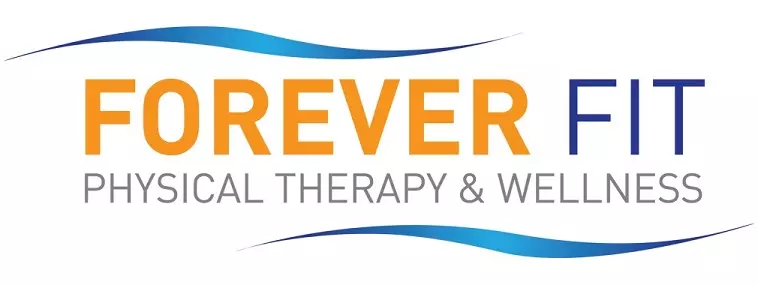Pelvic floor physical therapy can help with a wide range of symptoms and conditions. If you’re experiencing persistent pelvic pain, bladder issues, or challenges related to pregnancy and postpartum recovery, pelvic floor PT may be right for you. At Forever Fit, our licensed physical therapists provide personalized, compassionate care to all our patients. We have several locations throughout Maryland, including a location in Columbia. We also offer specialized pelvic floor care in Rockville and Gaithersburg.
If you experience some form of pelvic floor dysfunction, you’re not alone. Between a quarter and half of all women may experience pelvic floor issues, according to the National Institutes of Health. Men can often benefit from pelvic floor PT services as well. Pelvic rehabilitation centers around strengthening and relaxing the muscles in the pelvic region. This can help improve function and reduce symptoms. Learning more about pelvic floor PT may help you find out whether this kind of treatment can help you.
Who can benefit from pelvic floor physical therapy?
- People experiencing pelvic pain — If you’re experiencing pelvic pain, getting treatment can be essential. Pelvic pain can have a big impact on your quality of life, making it uncomfortable to sit, exercise or even walk. This pain can be persistent or occur during specific activities like using the bathroom or having sex. Often, pelvic pain is linked to tight or weak pelvic floor muscles. Pelvic floor PT can help you stretch and strengthen your muscles. Your physical therapist might also use manual therapy techniques to alleviate muscle tension. You don’t have to live with nagging pelvic pain. A licensed physical therapist can work with you to identify the source of your pain and build a personalized treatment plan.
- Pregnant people — Pregnancy puts a lot of pressure on the body, especially the pelvic region. As your baby grows, your center of gravity shifts and your muscles stretch to make room. This can lead to discomfort in the hips, pelvis and lower back. Pelvic floor physical therapy during pregnancy may help manage discomfort while preparing your body for labor and delivery. Your physical therapist may focus on reducing pelvic girdle and tailbone pain, as these areas are often affected by pregnancy. By starting PT early in your pregnancy, you may be able to reduce pain and the risk of complications, leading to a smoother birth experience.
- People in postpartum recovery — After giving birth, your body needs time and support to recover. It’s common to experience weakness in the core and pelvic floor, especially if you had a vaginal delivery. You may also notice bladder leakage or pelvic heaviness. Pelvic floor PT can support your healing by helping you regain strength in your pelvic floor and abdominal muscles. This may reduce your pain and improve bladder and bowel control. Physical therapy may also help you heal and manage lingering pain from perineal tearing or a C-section. With physical therapy, you can get the support you need while you work to manage discomfort and gradually return to daily activities.
- Active individuals — People who are very active can put extra stress on their pelvic floor muscles. Over time, this can lead to pain, leakage or a feeling of instability. Some people who might be at a heightened risk for pelvic floor issues include runners, weightlifters and dancers. Fortunately, physical therapy can enable you to stay active while protecting your pelvic health. Your physical therapist can work with you to improve muscle coordination and enhance your core stability. They can also guide you through injury prevention strategies.
- People experiencing incontinence — Incontinence is a common symptom of pelvic floor dysfunction, though it is not the same for everyone. Some people experience stress incontinence, which is triggered by activities that put sudden pressure on the pelvis. Stress incontinence isn’t just caused by heavy exercise, but also by simple actions like sneezing or laughing. Another kind of incontinence you might experience is called urge incontinence, which is characterized by a sudden, strong need to pass urine. Women and men can experience urinary incontinence due to weakened or overactive pelvic floor muscles. The good news is that treatment can help. With guided muscle training and education, many people see improvement in their symptoms and quality of life.
Get the PT treatment you need at Forever Fit’s Columbia location
No matter your age or background, pelvic floor physical therapy can help you regain strength, confidence and control. With Forever Fit, you can access compassionate and evidence-based care in Columbia, Maryland, as well as in Gaithersburg and Rockville. Our licensed physical therapists will take the time to understand your symptoms and goals, then build a treatment plan designed just for you.
Ready to sign up for your initial pelvic floor PT appointment with us? Fill out an appointment request form here or give us a call to set up your appointment.

